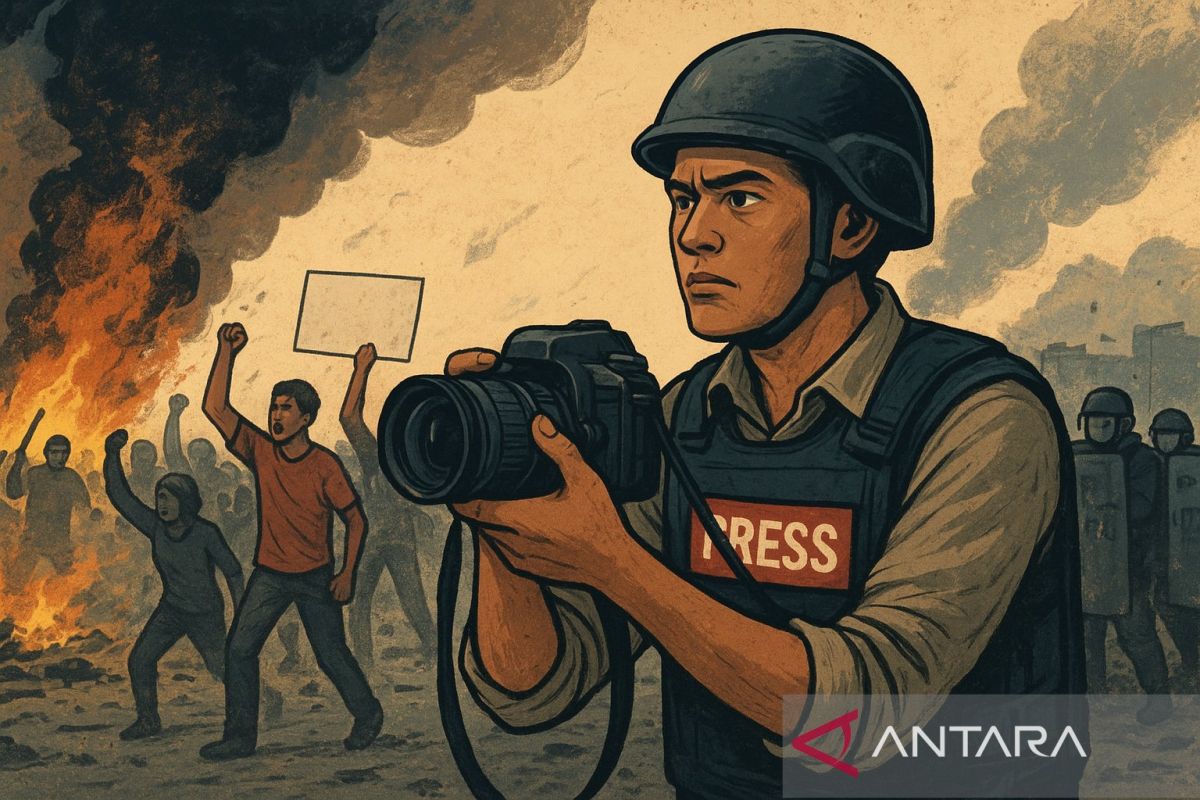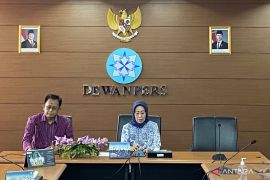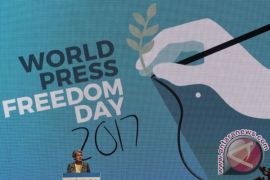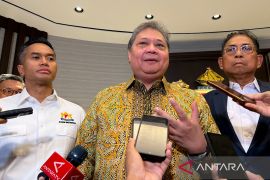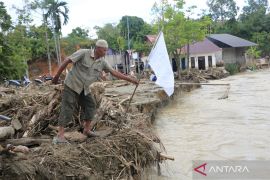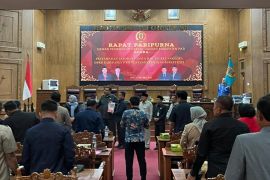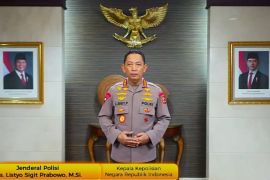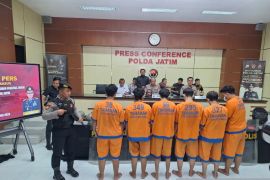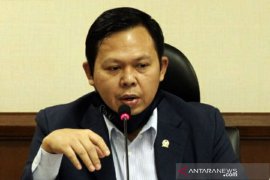Citizens increasingly recognize access to information as a fundamental right, while young people embrace sharing critical insights as an act of civic responsibility.Semarang (ANTARA) - In the dawn of the Reform Era, Indonesia introduced Law No. 40 of 1999—a legal instrument born from the nation’s longing for freedom of expression and public transparency, long suppressed in previous decades.
This law formally recognizes the press as the fourth pillar of Indonesia’s democracy.
Over two decades have passed since the law’s enactment, but the press still finds its freedom challenged amid ever-evolving circumstances and developments. Still, the nation’s hope and determination to strengthen democracy endure.
Journalists are at the forefront of this fourth pillar, tasked with uncovering the truth, verifying facts, and connecting the public with policymakers. Despite facing unfavorable or even dangerous conditions, they strive to inform and enlighten society.
In other words, these professionals strive to convey information and bring enlightenment to the public despite navigating unfavorable or even dangerous circumstances.
The recent wave of protests across Indonesia underscores journalists’ crucial role in democracy.
Bayu Pratama Syahputra, a photojournalist from ANTARA News Agency, was attacked while covering a demonstration at the Parliamentary Complex in Jakarta on August 25, even while wearing a press helmet and carrying professional cameras.
Similar incidents affected two photojournalists from Tempo and ANTARA, who were assaulted near the Jakarta Police Mobile Brigade headquarters in Kwitang on August 28.
Between January 1 and August 31 this year, the Independent Journalist Alliance recorded 60 cases of violence against journalists, including intimidation, terror, and cyberattacks on news outlets’ websites and social media accounts.
Among the most alarming cases, Tempo journalist Fransisca Christy Rosana was terrorized with a rotten pig’s head and beheaded rat corpses delivered to her home and office.
Rather than deterring journalists, these incidents have sparked solidarity among media workers and heightened public awareness about the importance of protecting reporters.
Advocacy efforts for journalists’ safety are on the rise, reflecting growing recognition of the press’s critical role in democracy.
Related news: Press Council, LPSK ink MoU to bolster journalists' protection
Identifying obstacles
Criticism of officials or public projects should not be considered a threat or crime but a vital exercise of freedom of expression.
A healthy democracy relies on recognizing that journalists’ voices are the people’s voices. Suppressing the press deprives citizens of factual and critical information, leaving corruption hidden, human rights violations ignored, and public policies unchecked.
While the Press Law guarantees the media’s freedom to disseminate information, Indonesia still struggles to enforce the regulation optimally, particularly when it overlaps with provisions in the Criminal Procedure Code (KUHAP) and the Electronic Information and Transactions (ITE) Law.
These challenges have sparked public calls to revise the Press Law. Academics, legal practitioners, and community organizations advocate for stronger legal guarantees for freedom of expression.
For instance, a journalist from Sumbawa District, West Nusa Tenggara, faced prosecution for sharing critical opinions about local infrastructure projects on Facebook. This case highlighted tensions between law enforcement and press freedom, emphasizing the need for proactive protections for journalists.
Another regulatory challenge lies ahead in the form of National Police Regulation (Perpol) No. 3 of 2025 concerning Police Functional Supervision of Foreign Nationals, which has sparked fears of more obstacles to independent reporting.
National Police (Polri) Chief General Listyo Sigit Prabowo explained that rather than restricting press freedom, the Perpol serves as a legal basis for the police to enhance protection and services for foreigners, including journalists.
He clarified that the police clearance certificate (SKK) mentioned in the Perpol is not mandatory for foreign journalists, as it is offered only to those seeking official protection when reporting in vulnerable regions like Papua.
Related news: National Press Day momentum to reflect on Press Law's relevance
Rekindling hopes
To create a press-friendly environment, Indonesia must ensure transparent prosecution of perpetrators of violence against journalists.
Revising the KUHP and ITE Law is also critical to prevent their misuse against critical reporting. Strengthening the Press Council is necessary to provide not just certification, but genuine protection for media workers.
These efforts should be complemented by steps to revamp Indonesia’s political culture, fostering the understanding among officials that criticism is not an insult and that critical reporting is not an act of sabotage.
It is only fitting for a healthy democracy to nurture such a viewpoint.
Public participation is equally vital—citizens should voice opinions and support journalists in uncovering facts. Despite ongoing obstacles, thousands of journalists remain committed to the fourth pillar of democracy.
Citizens increasingly recognize access to information as a fundamental right, while young people embrace sharing critical insights as an act of civic responsibility.
The Press Law, born of the Reform Era, embodies the nation’s commitment to guaranteed freedom of expression. As long as journalists stand firm, Indonesia’s democracy will thrive and live on.
Related news: Minister commits to safeguarding journalists' digital rights
Related news: Prabowo engages with seven journalists to discuss strategic issues
Related news: Police officer apologizes for attacking ANTARA photojournalist on duty
Editor: M Razi Rahman
Copyright © ANTARA 2025
